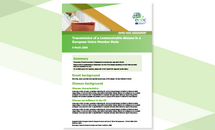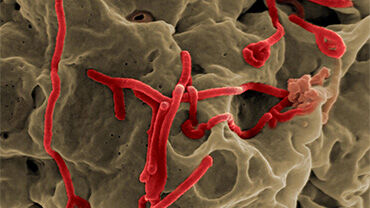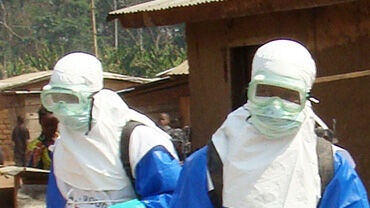Risk assessment: Ebola virus disease outbreak in North Kivu, Democratic Republic of the Congo, 2021
On 7 February 2021, an Ebola virus disease (EVD) outbreak was declared by the Ministry of Health of the Democratic Republic of the Congo (DRC), in the North Kivu province in the eastern part of the country.
Executive Summary
On 7 February 2021, an Ebola virus disease (EVD) outbreak was declared by the Ministry of Health of the Democratic Republic of the Congo (DRC), in the North Kivu province in the eastern part of the country. As of 18 February 2021, four confirmed cases of EVD, including two deaths, have been reported in the Biena and Katwa health zones. The first known case of EVD of this current outbreak died on 4 February. Laboratory testing confirmed infection with Ebola virus. North Kivu Provincial health authorities are currently leading the response, supported by the World Health Organization (WHO) and the DRC Ministry of Health. So far more than 300 contacts have been identified and a vaccination campaign was started on 15 February 2021.
These EVD cases are the first cases of the disease reported in North Kivu, DRC, since the tenth outbreak was declared over in June 2020. The ongoing outbreak may spread to other areas within DRC and/or in neighbouring countries.
Risk assessed
Overall, the current risk for European Union/European Economic Area EU/EEA citizens living in or travelling to affected areas in DRC is considered low, as while disease in unvaccinated people is severe and most EU/EEA citizens are not commonly vaccinated against the disease, there is a very low likelihood of infection of EU/EEA citizens in the DRC. The current risk for citizens in the EU/EEA is considered very low, as the likelihood of introduction and secondary transmission within the EU/EEA is very low.
Options for response
EU/EEA visitors and residents in affected areas in DRC should apply the following precautionary measures:
- avoid contact with symptomatic patients/their bodily fluids, and bodies and/or bodily fluids from deceased patients;
- avoid consumption of bush meat and contact with wild animals, both alive and dead;
- wash and peel fruit and vegetables before consumption;
- wash hands regularly using soap or antiseptics;
- ensure safe sexual practices.
Significant developments for the prevention of EVD have been made, with two vaccines (Ervebo and Zabdeno/Mvabea) now licensed for use in several countries, including in the EU. DRC has approved the Ervebo vaccine.
Screening of travellers returning from DRC is not justified at this stage.
Download







